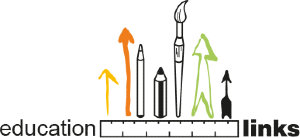Information Technology & Computing
A high-quality computing education equips pupils to use computational thinking and creativity to understand and change the world. Computing has deep links with mathematics, science, and design and technology, and provides insights into both natural and artificial systems. The core of computing is computer science, in which pupils are taught the principles of information and computation, how digital systems work, and how to put this knowledge to use through programming.
Building on this knowledge and understanding, pupils are equipped to use information technology to create programs, systems and a range of content. Computing also ensures that pupils become digitally literate - able to use, and express themselves and develop their ideas through information and communication technology - at a level suitable for the future workplace and as active participants in a digital world.
KS3 & STEP Learners
Areas covered include:
- Using computers safely, effectively and responsibly;
- Computer crime and cyber security;
- Understanding computers;
- Games programming in scratch;
- Spreadsheet modelling;
- Programming constructs using MicroBit simulator;
- HTML and website development;
- Computer networks;
- Introduction to python; and
- Application (App) Development Project.
KS4 & LTEP Learners
BCS International Certification of Digital Literacy (ICDL) Level 1
Areas covered include:
- IT security for users (Level 1)
- IT user fundamentals (Level 1)
- Using email and the internet (Level 1)
BCS International Certification of Digital Literacy (ICDL) Level 2
Areas covered include:
- IT security for users (Level 1)
- IT user fundamentals (Level 1)
- Using email and the internet (Level 1)
- Database software (Level 2)
- Presentation software (Level 2)
- Spreadsheet software (Level 2)
- Word processing (Level 2)
